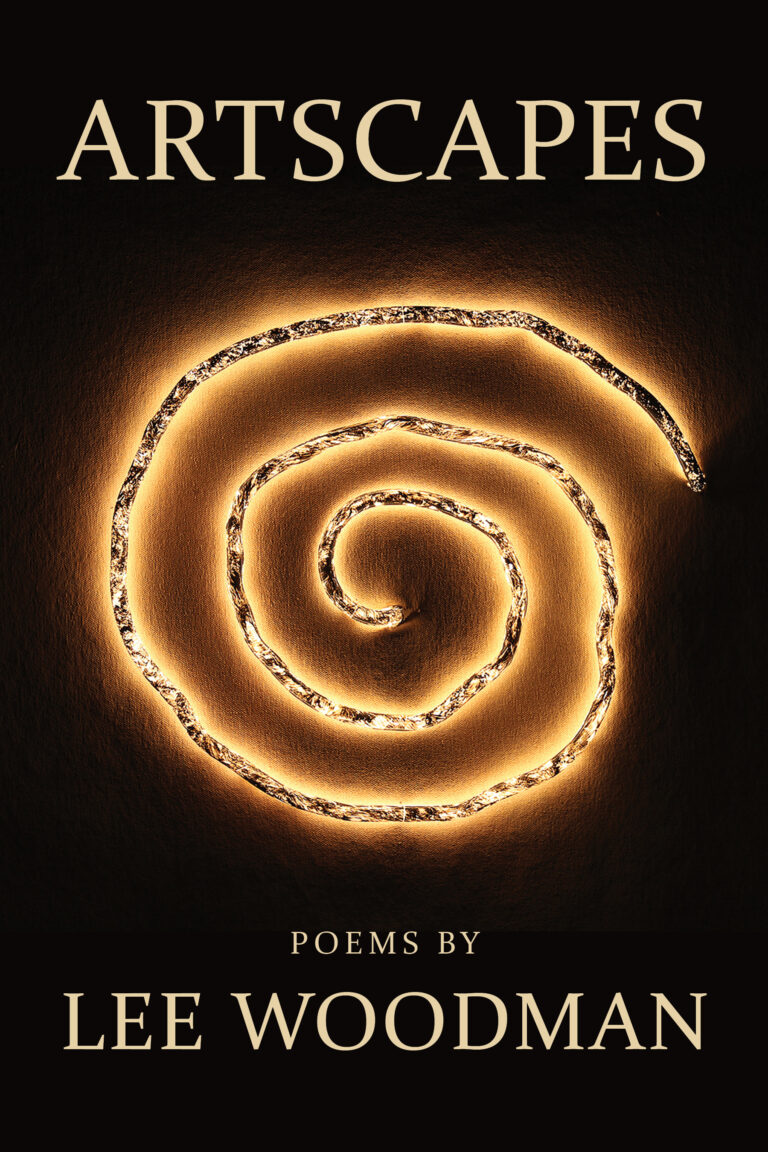Despite the wide array of forms that fall under its umbrella, ‘Art’ is typically thought of as a visual medium. Of course, as any musician or writer will tell you, there’s more to art than famous paintings. And regardless of the tool an artist wields, the only requisite is a desire to express. With her latest release, ARTSCAPES, Lee Woodman offers readers a collection of thought-provoking poems examining the oft-intriguing, occasionally befuddling relationship between the artist and their art.
Much like Woodman’s previously published work, a trio of titles that includes Homescapes, Mindscapes, and Lifescapes, ARTSCAPES is bound by a theme: using one art form (in this case, poetry) to examine another. Following an opening statement discussing her lifelong fascination with poetry, ARTSCAPES opens with the cleverly titled, ‘Mark Rothko, I Challenge Your Claim.’ The stanzas that follow take aim at the famed expressionist and his penchant for producing untitled paintings. The entry makes for a perfect introduction to Lee’s sophisticated prose, varied in its delivery but consistently evocative in its effect. From there, Lee continues her assessment of (mostly) twentieth-century art, ruminating on painter and painting alike. Be it the work of Salvador Dali (his Women of Time sculpture) and Rupert Bunny (Poseidon and Amphitrite) or one of music’s most enduring songwriters (Stevie Wonder’s “Superstition”), Woodman asks poignant questions about the artist and their intention.
For instance, ‘Globe’ opens with a seemingly obvious description of the Italian artist Arnaldo Pomodoro’s famous bronze sculpture, but Woodman soon shifts gears: “All bring to mind interior traps, forced grimaces, stifled worlds. A sculpture, cast in time, still screams into the future.” Pomodoro’s Sphere No. 6 might’ve been crafted in the early sixties, but the previously cited stanza serves as a potent reminder of the evergreen quality that embodies all great art. While ARTSCAPES primarily addresses works of modern art, the book’s final entry, A Kind of Gospel, takes its inspiration from a timeless melody. Faithfully covered by countless artists, Leonard Cohen’s ‘Hallelujah’ has yet to receive an interpretation quite like the one Woodman offers. Adopting a cadence reminiscent of the song’s distinct six-eight meter, the New York-based author notes the song’s sexual nature, references Cohen’s lyrics, and even namechecks K.D. Lang. But with references to “our time of plague” and families linked “through distant chords,” Woodman manages to infuse a hint of the current global fatigue.
The only notable limitation to this otherwise impeccable collection is the constant urge to google that accompanies each poem. Adventurous readers may choose to forge ahead without the aid of their preferred search engine, content to allow Woodman’s words to conjure a mental image, but seeing (or listening to) each poem’s inspiration ultimately provides some very necessary context. Still, the lack of pictures is hardly a deal-breaker, and likely a choice that can be chalked up to the cost-prohibitive nature of licensing.
An immersive collection of prose inviting readers to visit (or revisit) an impeccable roster of famed works, Lee Woodman’s ARTSCAPES is an intriguing ode to art and artist alike.
~James Weiskittel for IndieReader


